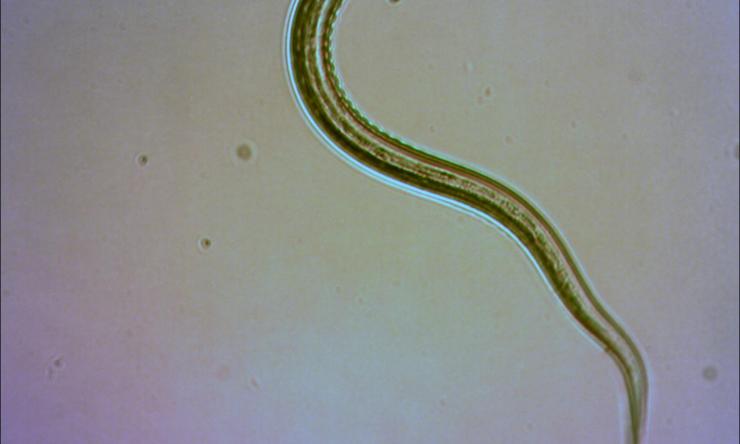New partnership takes on hookworm infection in rural Alabama
A new collaboration between researchers at the National School of Tropical Medicine at Baylor College of Medicine and the Mark Cuban Cost Plus Drug Co. will aid researchers in providing care for children with hookworm infection in rural Alabama.
Hookworm infection is caused by a worm parasite, with the most serious effect being blood loss that can lead to anemia, protein loss, cognitive disabilities and stunted growth in children. Hookworm infects over half a billion people in the world and is endemic in resource-limited areas of Latin America, China and Africa, but also is seen in rural areas of Alabama and likely in other impoverished areas in the Southern United States with poor sewage and sanitation due to fecal contamination.
Though hookworm infection has been present in rural Alabama with low levels of the infection persisting up until the 1950s, no extensive testing has been conducted in the area since then. Since 2013, Dr. Rojelio Mejia, assistant professor of pediatrics at the National School of Tropical Medicine at Baylor and director of the Laboratory of Human Parasitology at the Texas Children’s Hospital Center for Vaccine Development, has been studying the prevalence of this disease in rural Alabama and throughout the United States.
“Our research has detected shocking numbers of Americans infected with parasites from Texas to Alabama and as far north as New York City,” Mejia said.
Mejia’s new study will look at the prevalence of hookworm infection in children between 2 and 18 years of age.
“It’s important to understand the prevalence of the disease in children living in rural Alabama because recurrent infections can lead to anemia and long-term health effects,” Mejia said. “But another important part of the work is being able to provide treatment to those who test positive with hookworm infection.”
The treatment for the infection is the antiparasitic pill albendazole, which can cost up to $500 per dose. However, through a donation of 10,000 pills from the Mark Cuban Cost Plus Drug Co., Mejia and his team will be able to provide the pills to volunteers in the study who test positive for the infection. These pills would cost about $2 million if purchased from a drug company.
"We are thrilled to be able to support the National School of Tropical Medicine at Baylor in its work to study and help eliminate hookworm in the South,” said Dr. Alex Oshmyansky, CEO of the Mark Cuban Cost Plus Drug Co. “We found it deeply troubling that albendazole is extremely expensive in the United States, and we are happy to be able to manufacture it for free for this research and provide it at significantly decreased prices to the rest of the U.S. market."
Mejia said that often the cost of albendazole is more than the grants he receives for the research. He plans to use the pills for those identified with infection through his prevalence research, contribute to healthcare centers in the rural areas of Alabama, Texas, Louisiana and South Carolina, and distribute it to select infectious diseases clinics in the Houston area.
Mejia’s team will continue to follow those in the study who receive the albendazole to monitor for clearance of the parasite infection.
“This collaboration and donation is a game changer for helping people living in poverty and with this terrible infection,” he said.







 Credit
Credit


